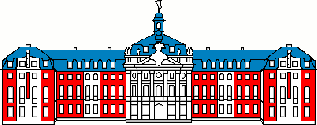



Next: Contents
Contents
 Universität Münster
Universität Münster
Institut für Theoretische Physik I
Bayesian Field Theory
Nonparametric Approaches to Density Estimation, Regression,
Classification, and Inverse Quantum Problems
Jörg C. Lemm
This publication can be retrieved from the URL:
http://pauli.uni-muenster.de/

lemm/
Email: lemm@uni-muenster.de
Bayesian Field Theory
Nonparametric Approaches
to Density Estimation, Regression,
Classification, and Inverse Quantum Problems
Jörg C. Lemm1
Institut für Theoretische Physik I
Universität Münster
Wilhelm-Klemm-Str.9
D-48149 Münster, Germany
Abstract:
Bayesian field theory denotes a
nonparametric Bayesian approach
for learning functions from observational data.
Based on the principles of Bayesian statistics,
a particular Bayesian field theory
is defined by combining two models:
a likelihood model,
providing a probabilistic description
of the measurement process,
and a prior model,
providing the information
necessary to generalize from training to non-training data.
The particular likelihood models discussed in the paper
are those of
general density estimation,
Gaussian regression, clustering,
classification,
and models specific for inverse quantum problems.
Besides problem typical hard constraints,
like normalization and non-negativity for probabilities,
prior models have to implement all the specific, and often vague,
a priori knowledge available for a specific task.
Nonparametric prior models discussed in the paper are
Gaussian processes, mixtures of Gaussian processes, and
non-quadratic potentials.
Prior models are made flexible
by including hyperparameters.
In particular, the adaption of
mean functions and covariance operators of Gaussian process components
is discussed in detail.
Even if constructed using Gaussian process building blocks,
Bayesian field theories are typically non-Gaussian
and have thus to be solved numerically.
According to increasing computational resources
the class of non-Gaussian Bayesian field theories of practical interest
which are numerically feasible is steadily growing.
Models which turn out to be computationally too demanding
can serve as starting point to construct easier to solve
parametric approaches, using for example variational techniques.




Next: Contents
Contents
Joerg_Lemm
2001-01-21
